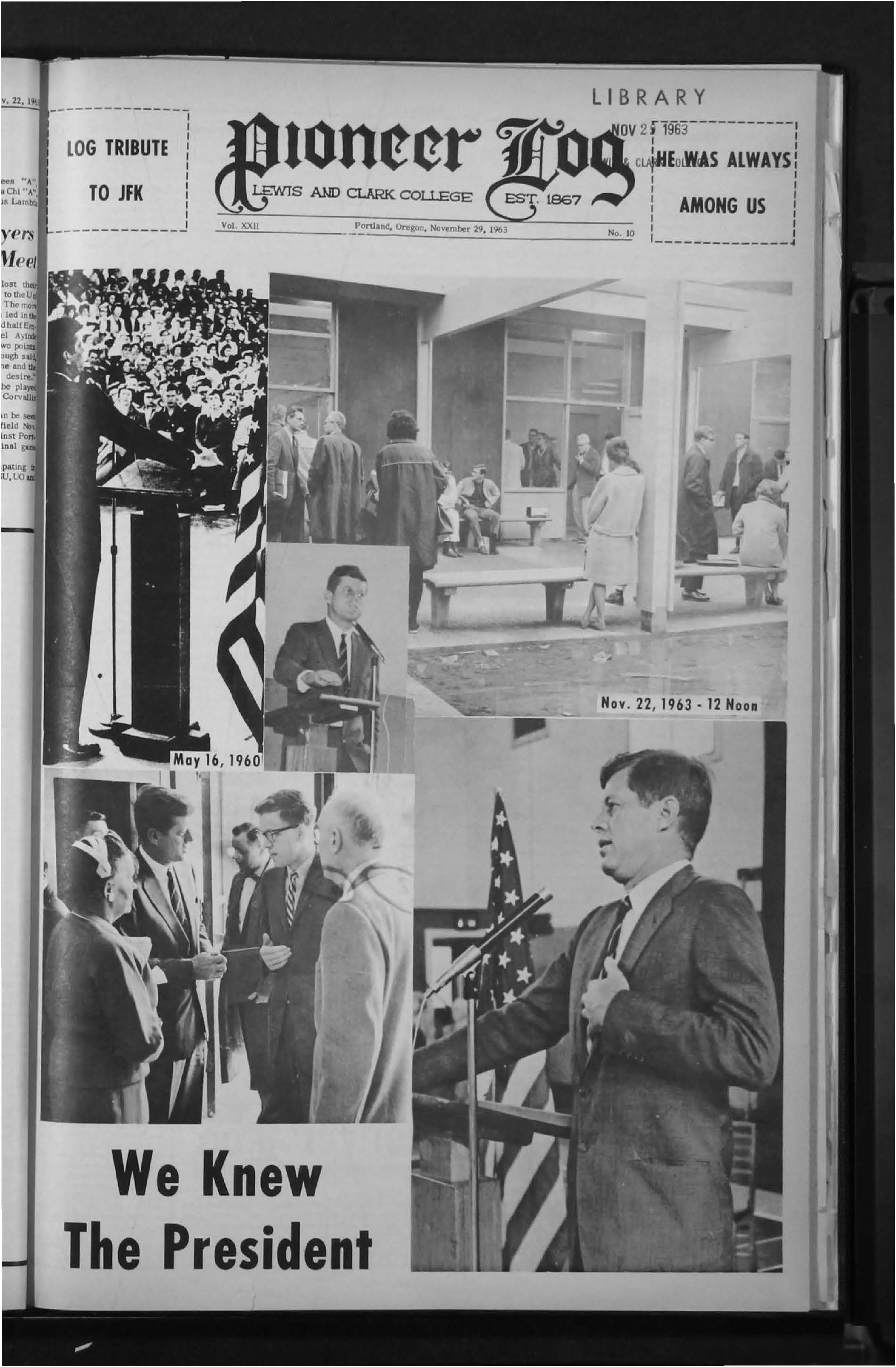
As the LC community deals with the consequences and actions of the Trump Presidency, it is important to look back in time, see how the community has dealt with political turbulence and how the Pioneer Log consistently sought to inform the student body to the best of its capability. The Pioneer Log in the 1960s offers an appropriate retrospective given the current political climate.
In 1963, the Pioneer Log provided a platform for frustrated and grieving students mourning the loss of President John F. Kennedy. Associated Students of Lewis & Clark President Ray Redburn ’65 published a letter in the Kennedy assassination edition of the Pioneer Log. “If a part of any organism ceases or neglects to function, it soon loses its capacity to function and becomes useless,” Redburn said. “To maintain a viable position in the body politic, we [the LC community] must become, and remain, active and alert to the issues of the day.”
The spirit of Redburn’s statement carried well past November 1963.
As the Civil Rights movement of the ’60s began to enter the conscience of college students in America, the Pioneer Log began covering protests, stories of travelling to Mississippi to help register black voters and the activities of the Student Nonviolent Coordinating Committee. On Oct. 2 1964, a widely dispersed correspondence from SNCC detailing a string of bombings in McComb, MS was published in the Pioneer Log.
Following this story, the Pioneer Log began publishing stories written by LC alumni Bill Hayden and Arleigh Dodson chronicling their experiences in segregation era Mississippi.
In 1965–and through the rest of the 1960s–the Pioneer Log dedicated itself to informing the students about the Vietnam War and the draft. On Nov. 17, 1965 the Pioneer Log reported on changes to the Draft Board’s policy on exemption from service, impacting LC’s eligible-for-duty men.
On Jan. 12, 1966 Pioneer Log writer Jim Ash ’65 wrote an article titled “US Policy Neglects Viet Nam’s History.” In the article, Ash articulates his critique of US foreign policy in Southeast Asia, drawing on his study of SE Asian languages. Two weeks later, Roger Ferland ’68 said “Any negotiated peace will require a supervisory body and the North Vietnamese will be the only body with enough power to control anything after a withdrawal of American forces.” Two years later, Ferland was drafted. He served as a squad leader and platoon sergeant. He lost both his legs in the war, but was awarded a Bronze Star, the Purple Heart and a Combat Infantry Badge.
As the ’60s came to a close, the Pioneer Log voiced the concerns of the Black Student Union frequently. During a Black Power conference in May, ’68, the trials and tribulations of the Black Student Union were chronicled. Despite working within a community that supported what a news writer in the May 3, 1968 issue of the Pioneer Log called a “southern colonial atmosphere” party during parents weekend, the BSU utilized the Pioneer Log as a way to communicate their message to the school. It is “virtually impossible for the BSU to function as a decision-making body in school policy,” said June Glenn, president of BSU at the time.
We, as a community, are dealing with many of the same issues that we were back then; and we, as the student newspaper, are committed to voicing the students opinions, the students issues, and the students worries about the rapidly evolving political climate.
Subscribe to the Mossy Log Newsletter
Stay up to date with the goings-on at Lewis & Clark! Get the top stories or your favorite section delivered to your inbox whenever we release a new issue.

Leave a Reply